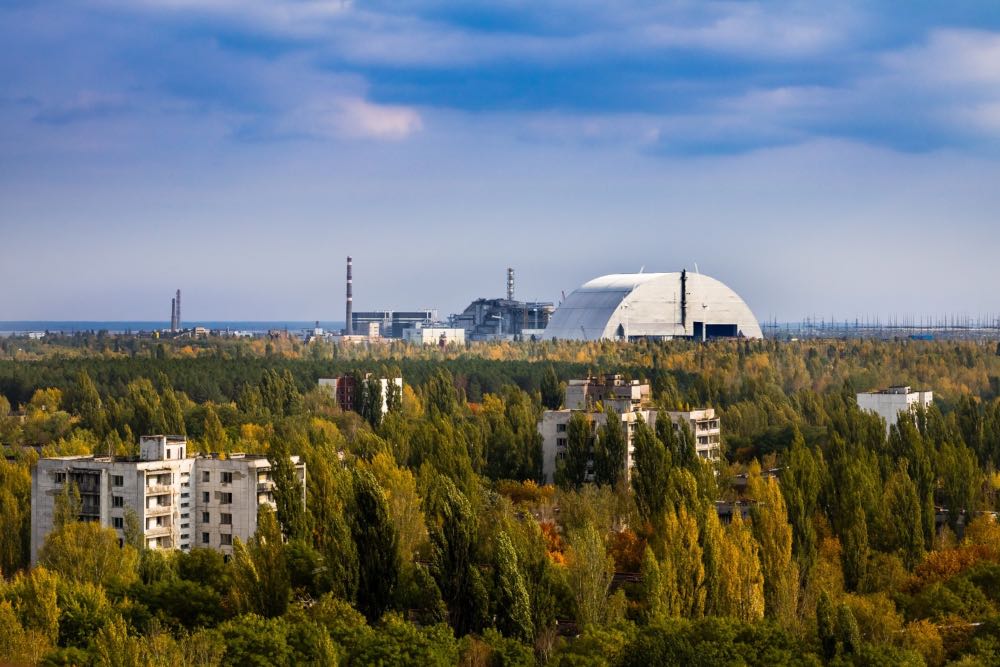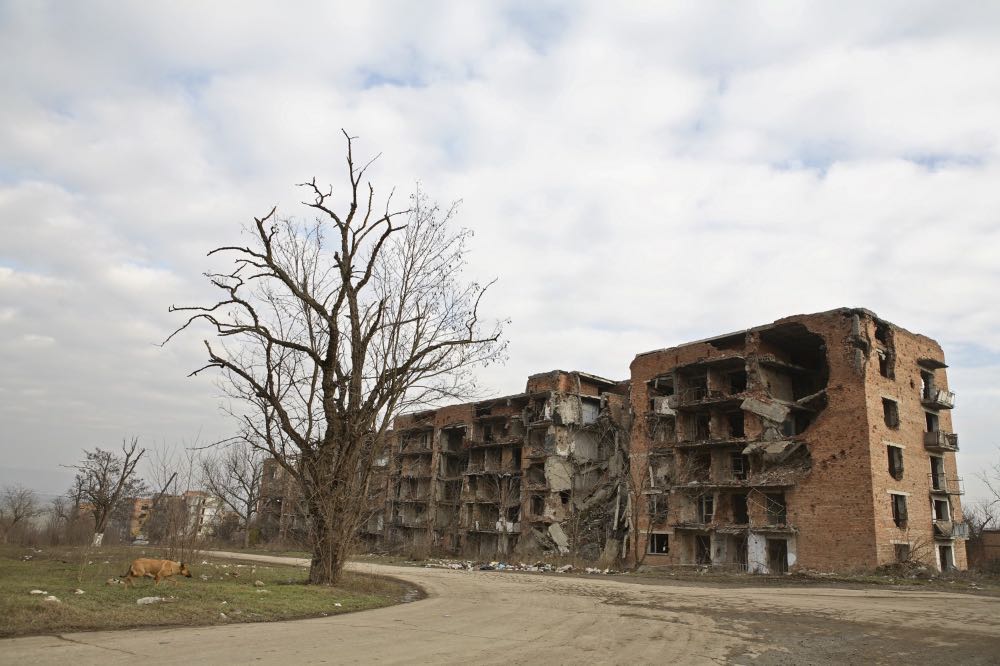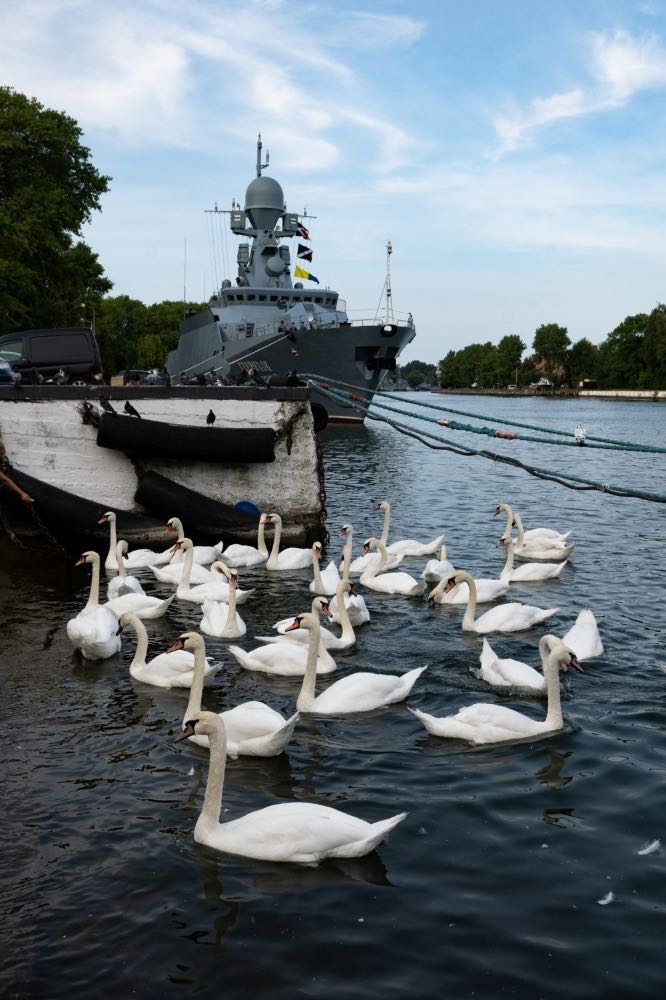
Pripyat and Chernobyl were abandoned after the reactor explosion in 1986 © R.Vicups/Shutterstock
Modern wars create damage for ecosystems, varying from over-consumption of plants and animals to fire and pollution, which destroy habitats, with release of greenhouse gasses from industrial sites. Biota recovers most gradually for sedentary species which breed slowly. It can take centuries for forests to recover. Therefore, the Geneva Conventions require states at war to protect the natural environment against “widespread, long-term and severe damage,” and prohibits methods or means of warfare “which are intended or may be expected to” cause such damage. Such damage would inevitably arise from use of nuclear weapons. At Chernobyl in Ukraine, where a nuclear reactor exploded in 1986, much function of soil has recovered in 30 years, but other effects on biota may last far longer. Dangers for the ecosphere from use of multiple nuclear weapons include the possibility of a ‘nuclear winter’ with little growth of plants for several years .
A failure of governance

Buildings and trees damaged by war in Chechnya © V.Melnik/Shutterstock
War represents a failure of governance. Humans have evolved as both social and competitive animals. Due to the dangers of aggressive competition, social rules were developed to regulate behaviour of individuals within societies. More recently, the United Nations and other global forums formalised international consensus on ideal standards of behaviour across societies, for example through the Geneva Convention. Societies change their internal rules with time, but need to do so at their own pace. Modern communications can accelerate change but disinformation can polarise and cause aggression.
Indirect impacts and a possible global-with-local solution

Swans swim peacefully near a warship © Ellen6/Shutterstock
The indirect effects of war may be the most damaging of all for the ecosphere. Humanity has had to fight a war against Covid-19, but faces a more severe threat from climate change. To survive that threat requires unanimity between nations, as well as strong national economies to fund the transition to renewable energy. Aggression within and between nations not only damages national economies but also distracts public attention from need to address climate change. This aggression can be enhanced between countries by restrictions on information flow and within countries by internet-mediated polarisation. Thus, local people who manage land and species may become intolerant of other interests in nature, instead of creating a joint culture against climate change, when opinions are channelled in different directions by social media.
However, the internet creates governance opportunities which are as profound as its threats to cultural integrity. Just as consensual agreement guides the United Nations, so is consensus of many interests the basis for local government. The internet enables glocal (global with local) governance, for instance with local knowledge and monitoring exchanged for guidance from global level (as in this network). Increased organisation at levels with consensual decisions may give humanity time to find how governance with single or multiple parties can work best at national and federal levels.